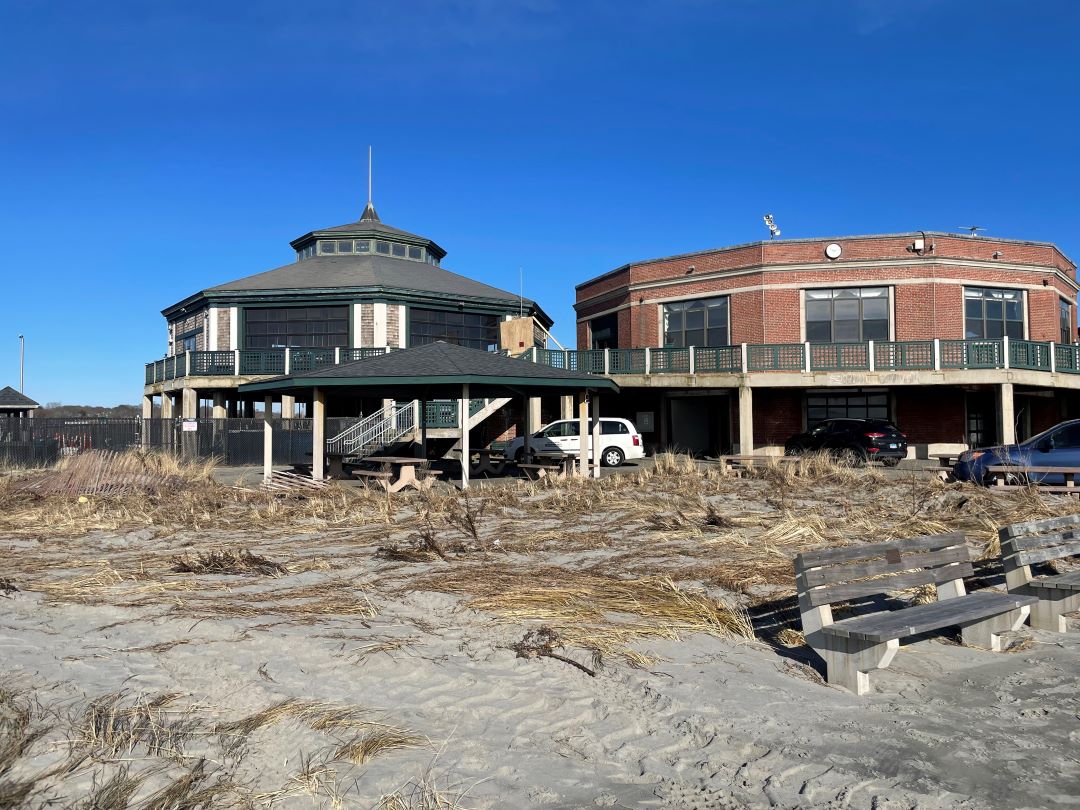Cranston Buys Homes to Reduce Flooding and Expenses
September 12, 2017
WARWICK, R.I. — As an unprecedented series of hurricanes pummel the southern U.S. coast and Caribbean, Rhode Island is taking steps to prepare for its next hurricane, flood or other extreme-weather event.
At the Sept. 6 meeting of the state Executive Climate Change Coordinating Council (EC4), the committee of department heads received an update on existing and upcoming climate-adaptation programs.
Cranston retreats
Since the flooding of 2010, Cranston has been buying houses and tearing them down. So far, 20 homes in flood-prone neighborhoods along the Pawtuxet and Pocasset rivers have been razed and hauled away, and the lots reclaimed by shrubs, grasses and wild turkeys.
A number of factors allowed the city to take advantage of what many environmentalists consider the best solution to adapt to climate change: remove manmade structures from rising waters and flood zones.
Cranston’s planning director, Peter Lapolla, said the buyout program works because the city pays between $200,000 and $220,000 per home, a modest price compared to homes in other coastal flood zones across the state. The city funds about 25 percent of the cost and the Federal Emergency Management Agency (FEMA) pays the rest.
Lapolla insisted there is no use of eminent domain and all purchases are agreed to by the homeowners. In fact, the city sweetens its offer by excluding detractors in its price estimates, such as the existences of the flood plain and flood-insurance costs.
“We can pay more than they get on the market,” Lapolla said. “That raises the value of the home.”
The retreat concept isn’t new. Between 1982 and 1985, Warwick removed 61 homes from the Pawtuxet River Oxbow. The flood-prone neighborhood was replaced by woodlands and athletic fields. The city is considering buying other properties while advancing adaptation projects, such as elevating homes in the low-lying section of Warwick Neck. The city recently completed a $13 million restoration and elevation of the levee around its wastewater treatment facility, which flooded in 2010 and released 75 million gallons of wastewater.
The city of West Haven, Conn., has also bought homes in flood zones.
Janet Coit, EC4 chairwoman and head of the Rhode Island Department of Environmental Management, is impressed by Cranston’s buyout program. Nature, Coit said, is going to reclaim flood-prone land eventually. Flood insurance, she said, only worsens the problem by helping property owners rebuild instead of retreat.
“Paying a little more (to buy) the house now is smarter than repetitive losses over time,” she said.
Coit and James Boyd, coastal policy analyst for the Coastal Resources Management Council, said there isn’t enough money to buy all the homes built in flood plains. But the issue may be reckoned with soon, as the federal flood insurance program faces $25 billion in debt and potentially billions more to pay policyholders after the latest hurricanes.
For now, Coit said there are two realistic options for confronting climate change. The first is to take care of the issues that are known and can be addressed, such as health risks and stormwater runoff. The second is to be prepared to improve the built and natural environment after extreme-weather events. These actions include elevating and buying flood-prone homes, enforcing better building codes, and building more durable infrastructure.
“In periods of calm we can make the smart policies so that when the storm comes … we will be ready in the aftermath,” Coit said.
Lapolla said many of the other options, such as building flood walls, are much more expensive. For Cranston, at least, buying homes is better than paying to rebuild every time it floods.
“There are no other alternatives,” he said. “The floods will continue coming. The houses and businesses are not where they should be.”
PREP-RI
On Sept. 25, the state will host a brown-bag lunch to answer questions about a new series of videos and online training tools to help municipal planners, planning boards and other local officials learn about, prepare for and adapt to the impacts of climate change. PREP-RI offers six, 10-minute videos about climate-related topics such as flooding, stormwater and adaptation.
The information is designed to help cities and towns meet requirements for climate-change planning in their comprehensive and hazard-mitigation plans. The learning tool are also recommended for the general public.
The PREP-RI meeting will held at DEM’s Providence headquarters, 235 Promenade St., in Room 300, at noon.




Where was this common sense approach in the 1st place, when they allowed and STILL Allow Developers to build homes and businesses in flood planes areas…????